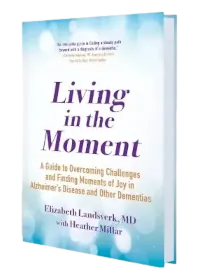What is Dementia?
This is a scary, poorly understood area of Medicine. It is top of mind for many, causing fear (particularly if family members have had dementia), leading many to seek out MD gurus, who sell expensive supplements and treatments promising they will prevent dementia and aging.
Spoiler alert – no studies show that supplements prevent dementia.
Mild Cognitive Impairment
Like heart failure, caused by different medical problems affecting the heart, dementia is brain failure; from a variety of causes. Early, it is Mild Cognitive Impairment (MCI)—forgetting words, names, appointments, or medications occasionally but still able to function independently. People with MCI can manage meals, transportation, paying bills, and most care.
Dementia is the loss of function in several areas, from memory to judgement, impulse control, coordination, and visual interpretation of the environment. A person with more advanced dementia cannot live independently and often needs someone to attend to their finances and support their daily living.

How to Diagnose Dementia
The challenge of identifying dementia is that it usually develops slowly. Often, the first to change is an erratic mood or loss of empathy; an elder who has always been loving and helpful is easily angered, apathetic, or socially inappropriate. Families may be in denial about the development of cognitive decline. The elder is more likely to have brain changes that make it impossible for them to realize what is happening to them, their health, or their behavior.

It may be difficult at first for the family or the primary provider to identify the brain changes.
A checklist of abilities is a good place to start.
- using the telephone
- shopping
- preparing meals
- housekeeping
- using transportation
- taking medication(s)
- and managing finances
These are skills an elder needs to live independently. If you are seeing a loved one struggling… or ignoring any of these, it is time for an evaluation.
Commonly, a 10-minute screen, such as the Mini-Mental Status Exam (MMSE) or Montreal Cognitive Assessment (MoCA), is administered at the doctor’s office. This is a good start, it might demonstrate problems that had not been evident in day to day care…. such as the devoted spouse who does everything for someone who cannot care for themselves anymore. The usual cut off for “dementia” is 24/30. However, as we address later, and in our book “Living in the Moment: Overcoming Challenges and Finding Moments of Joy in Alzheimer’s and other Dementias”, a score of 30/30 does not guarantee the elder can take care of medical or financial affairs.
The most important skills for an elder to retain to be more independent is remembering medications, safety issues at home (turning off stove or faucet), not getting lost going out and being able to make meals for oneself.
Medications can Look like Dementia
Confounders often include medications, particularly pills for anxiety or insomnia, untreated pain, sedating medications, or medications causing confusion. Testing for dementia should not be done when an elder is taking Ativan/Xanax or Klonopin (these needs to be slowly tapered), anticholinergic medications, Keppra for seizures, any sedating medications can make and elder look like dementia.
Alcohol Abuse can Look like Dementia
Alcohol abuse can also look like dementia, or other mental illnesses. No diagnosis of dementia or mental illness should be made until an elder drinking alcohol has been off alcohol for six months. Impossible you say? Well, it’s not easy, but I have had luck having elders with caregivers or in facilities to taper down the alcohol and help with support to get healthy again.

Dementia occurs in ~ 10% of people over 65 years old and ~ 40% of people over 85 years old. In many areas, 40% of people with dementia are not diagnosed.
The most common dementia is Alzheimer’s Dementia or ~ 70% of all diagnoses. Next is Vascular Dementia which is about ~ 30% of diagnoses, and overlaps with Alzheimer’s.
Other less frequent types are Frontal or Frontotemporal Dementia, Lewy Body Dementia, Normal Pressure Hydocephalus, Alcoholic Dementia, Traumatic Head Injury, and then the rare Huntington’s Disease, etc.
Early diagnosis allows the elder to participate to determining decisions going forward. If they have their much of their memory and judgememt they can help craft will, if possible, and care decisions (POLST and DPOA). Family should focus on keeping elders engaged in enjoyable exercise routines. More engagement is better, as well as keeping physically active and decreasing dementia risk factors to help an elder stay as independent as possible for as long as possible.
What is the difference between Dementia and Alzheimer’s?
Dementia is the category of brain failure… several diseases can lead to dementia.
Do Not Delete
do not delete this module
Alzheimer's Disease
The most common type of dementia. It is the deposition of proteins (B amyloid) that leads to a smooth decline over 4-17 years. Loss of memory, located in the hippocampus, is an early symptom. In addition, the person may be more irritable, apathetic, inappropriate and not function on the level they had a few years earlier. They will often not be aware of their brain failures. Support groups for the elder and the family is a very good start to address the life changes for everyone.
Eventually, the elder will not be able to live alone, or may refuse help at home. That is when the chosen decision maker or durable power of attorney DPOA and care team need to be ready to help.
Vascular Dementia
This is usually small strokes (can be larger ones as well), leading to loss of brain function. This is a challenging disease to care for, because the other parts of the brain, at first, seem to work fine. The elder may not remember they did not eat, or take their meds, or may lose their wallet and blame others for stealing. In the moment, they will often sound fine, but then forget the conversation a short time later. They will often not see the need to stop driving, or have help with finances, or help at home. This takes a skilled care team to support.
Vascular Dementia is often associated with Type 2 Diabetes, high blood pressure, high cholesterol, obesity, and lack of exercise. The quickest way to decrease risk factors is to decrease weight.
Lewy Body Dementia
LBD is often associate with Parkinson’s like symptoms. However, the dementia symptoms develop before the Parkinson’s symptoms. In Parkinson’s Dementia, the Parkinson’s motor symptoms develop before the dementia symptoms.
Classically, LBD has early visual hallucinations, sleep disorder (REM sleep), and more mood lability, delusions than memory symptoms at the start. It can be difficult. Mary would call the police saying her husband was an intruder. It was very difficult for everyone. Eventually, we got her Parkinson’s medications decreased, stopped the Ativan and balanced her medications and she she remembered her husband, accepted care and could stay home for a year or so.
Frontal Dementia
Very challenging at first. Memory is typically intact. What is broken is social inhibitions, saying inappropriate things, having delusions, very poor judgement. Sometimes there are obsessions with one particular item, or oral symptoms chewing on things, or not speaking. Often the head CT shows changes in the frontal lobes.
There are medications to help with the delusions and lack of inhibition. The medication is not Ativan. Important to find a doctor familiar with these challenges. Geriatricians or Memory Clinic Neurologists are the best place to get help for this dementia.
Alcoholic Dementia
This may be a challenge for younger (under 65) adults. It depends on how heavy alcohol use has been. Have there been any head injuries that increase susceptibility? People may sound socially OK, at first. However, it is also more common to make things up; Wernicke-Korsakoff syndrome and related to thiamine deficiency (Vitamin B1). The important issue of alcohol abuse is that it is impossible to diagnose any mental disorder for 6 months after they become sober. They are not likely to stop on their own and may have serious medical consequences for stopping alcohol abruptly. It should be monitored by their medical team; and slowly decrease how much they drink- or use a medication like Ativan to taper the elder through the withdrawal.
Of note. No amount of alcohol is safe. Alcohol is toxic to the brain and can increase the risk of cancer. Reservatrol is not beneficial as thought. However, a glass of wine a few times a week for a nice meal is probably (emphasis on probably) OK. It is really not so good to drink daily.
Normal Pressure Hydrocephalus
NPH is a diagnosis that really is over diagnosed. As we age, particularly when there is damage to the brain cells from trauma, stroke, or alcohol… it produces atrophy. An elder may have more atrophy than the radiologist thinks is normal and will call it Normal Pressure Hydrocephalus. Although it is really atrophy that makes the ventricles (where the cerebral fluid is located and when there is too much pressure, there is more fluid there…) look bigger.
A key symptom of NPH is early incontinence, dementia and trouble walking (the step is called magnetic gait… hard to pick up the feet). If that all happens at the same time. Go get checked today. They should do a lumbar puncture to check on the pressure. Much more often, the elder has dementia, then later, they develop trouble walking and incontinence…. that is common and a general symptom of progressive dementia.
The treatment of NPH is placing a shunt to tap the brain fluid and send it off to the abdomen. It is great for NPH. However, it increases the risk of infection… so should not be used for more general dementia.
Traumatic Brain Injury
TBI is more common in football players, soldiers who experienced concussive blasts, and those who have fallen and hit their head. It may produce more irritability, aggression and confusion. TBI is not something that a person can just be more disciplined and have the symptoms go away. They need support, understanding, structure and often medication to decrease reactivity and aggression. Spoiler- it is NOT Ativan or Xanax.
Caregiver Support
Managing behaviors such as agitation, confusion, and pain in an elder with dementia can be overwhelming. Our caregiver support resources provide practical tips to help you handle these challenges, ensuring your loved one stays safe and comfortable at home.
Dementia Medications
Understanding the medications prescribed for dementia, such as cholinesterase inhibitors, is crucial for caregivers. Learn how these treatments work, their benefits, and potential side effects to ensure your loved one receives the best possible care.
Dementia Stages
Dementia progresses in stages, each with its own set of challenges. From early confusion to advanced memory loss, we help caregivers navigate what to expect at each stage and how to provide the right level of support at every step.
Tests to Identify Dementia
Early detection is key in managing dementia. Tests like the Montreal Cognitive Assessment (MOCA) and the diagnosis of Mild Cognitive Impairment (MCI) can help identify dementia symptoms early. Discover how these tests work and what the results mean for your loved one’s care.
Learn more in our comprehensive guide to dementia, Living in the Moment: Overcoming Challenges and Finding Moments of Joy in Alzheimer’s and Other Dementias  Many have told me they bought a copy for their family… then bought 4 more for friends facing similar challenges.
Many have told me they bought a copy for their family… then bought 4 more for friends facing similar challenges.
There are a lot of Dementia Care books out there. This one created by an expert Geriatrician is for the messy parts of dementia. Getting a diagnosis, even when the doctor says they are just old, knowing what medications cause problems… and can help, knowing when and where to get help, fighting financial abuse and knowing what hospice should be providing for a start.
Our DLG Community is also there for support and education to trouble shoot the challenging situations.

